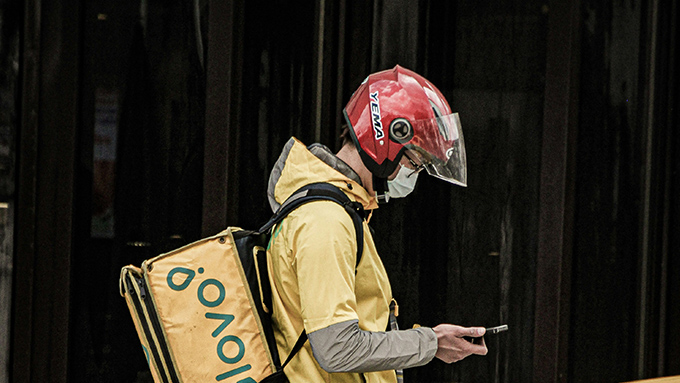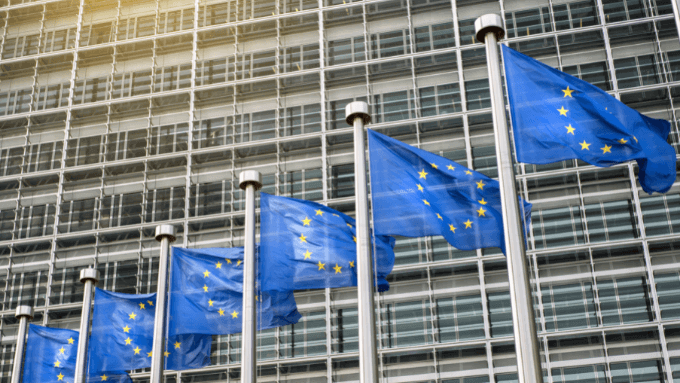The Commitment Mechanism in Competition Law Investigations in Turkey and the European Union
Introduction
Law numbered 7246, Amending the Law on Protection of Competition numbered 4054 (“Amending Law”), has been published in Official Gazette numbered 31165, and dated 4 June 2020, entered into force on the same day. This Amending Law has brought significant changes to Turkish competition law practice. The introduction of the commitment mechanism within preliminary and fully fledged investigations was one of the noteworthy changes that the Amending Law provided. Accordingly, through the Amending Law, and in line with the European Union legislation, the commitment mechanism has been included in Article 43 of the Law on Protection of Competition numbered 4054 (“Law numbered 4054”), which regulates “Initiating an Investigation.”
The relevant addition included in Article 43 of Law numbered 4054 is as follows:
“Relevant undertakings, or associations of undertakings, may offer commitments in order to eliminate the competition problems under Articles 4 or 6 that may arise during an ongoing preliminary inquiry or investigation process. If the Board decides that the proposed commitments can resolve the competition problems, it may render these commitments binding for the relevant undertakings, or associations of undertakings, and decide not to initiate an investigation, or to terminate an ongoing investigation. Commitments shall not be accepted for naked and hard-core infringements, such as price-fixing between competitors, region and customer allocation, or supply restriction. The rules and procedures concerning the application of this paragraph shall be established with a communiqué issued by the Board.”
Accordingly, within the scope of the relevant Article, the parties may offer commitments in an on-going preliminary investigation or fully fledged investigation, with regard to Articles 4 or 6 of Law numbered 4054. If the Competition Board (“Board”) finds the offered commitments to be appropriate, the Board may render these commitments binding for the relevant undertakings and decide not to initiate a fully fledged investigation, or to terminate the ongoing investigation. On the other hand, with regard to a number of infringement types, the commitment mechanism shall not work. These types of infringements are the hard-core infringements, such as price fixing between competitors, region and customer allocation, or supply restrictions that have been included in the “cartel” definition within the Regulation of Administrative Monetary Fines.
In addition, after a decision regarding the termination of the investigation or the preliminary investigation is taken, the Board may re-launch an investigation if:
- There is a substantial alteration in any of the factors upon which the decision was based;
- The relevant undertakings or associations of undertakings are in violation of the commitments given; and/or
- The decision was based on missing, false, or misleading information presented by the parties.
The commitment procedure aims to prevent the damages that occur as a result of competition law infringements at an early phase and, therefore, realize savings in time and costs for the public institutions and undertakings, which occur due to the detailed investigation processes that is required for the determination of the competition law infringements. As a result, when compared to the regular investigation processes, the investigations in which the commitment mechanisms are activated are concluded within a shorter timeframe.
Furthermore, from undertakings’ perspectives, faster proceedings and the absence of the finding of an infringement, may be important reasons to offer commitments.
Article 9 of Council Regulation (EC) No. 1/2003 on 16 December 2002, on the implementation of the rules on competition laid down in Articles 81 and 82 of the Treaty (“Regulation numbered 1/2003”), sets forth the commitment procedure. Through the Amended Law, the alignment between Turkish competition law and European Union legislation increases.
The First Commitment Submitted in Turkey
The commitment mechanism that came into Turkey, in June of 2020, has been rapidly implemented in real life in the ongoing investigation with regard to the undertakings that provide services on temporary customs stocking. The very first implementation has been announced on the Competition Authority’s website (“Announcement”).[1]
According to the Announcement, within this investigation[2] that concerns the determination as to whether the undertakings, which provide services on temporary customs stocking, infringed Article 6 of Law numbered 4054, Havaalanları Yer Hizmetleri A.Ş. has offered a commitment and the Board, through its decision dated 5 November 2011, has concluded that the relevant commitment releases any competitive concerns. As a result, the commitment process for the relevant case has been completed in a short time, as being one month, and the investigation has been terminated with regard to the relevant undertaking.
Rules and Procedure
Article 43 of Law numbered 4054 states that the rules and procedures concerning the application of this paragraph shall be established through a communiqué issued by the Board. However, the relevant communique has not yet been issued. The current procedure is described as follows: When an undertaking wishes to offer commitments in an investigation or preliminary investigation, it shall submit a statement to the Competition Authority that indicates its’ intent to submit a commitment, as well as a meeting request. In the meeting, it shall explain its draft commitments that shall release any competitive concerns. Following the meeting with the Competition Authority, the undertaking is expected to submit the formal commitment statement. Afterwards, the Board shall decide with regard to the commitments’ convenience and its’ decision.
In European Union practice, the “Manual of Procedures on the Internal DG Competition working documents on procedures for the application of Articles 101 and 102 TFEU” (“Manual”) lights the way.[3] According to the Manual, undertakings may contact the DG Competition at any point in time to explore its’ readiness to enter into commitment discussions. A State of Play meeting will be offered to parties that signals an interest in discussing commitments. The parties may ask questions in the State of Play meeting. Afterwards, the parties submit a "term sheet" describing the main elements of the commitments, but sometimes are ready with a first draft of a commitment text. Once the case team is convinced that the commitments informally proposed by the undertaking may address the competition concerns, and that the undertaking is seriously interested in submitting adequate formal commitments, it will propose to draft a Preliminary Assessment. The Preliminary Assessment serves as an important basis for the parties to formulate appropriate commitments fully addressing the competition concerns expressed by the Commission, or to better define previously discussed commitments. The formal meetings commence following the acceptance of the Preliminary Assessment.
The Commission may ask the parties to make necessary amendments on the commitments before the market test stage. Should the commitments be found appropriate by the case handlers, the market test stage approval of the competition commissioner is required.
Within the stage of "market test,” the Commission is obliged to publish a concise summary of the case and the main content of the commitment proposal, and to give third parties a chance to submit their observations before it can adopt a decision pursuant to Article 9 of Regulation numbered 1/2003. The market test is sent to the complainant, as well, if the investigation starts upon a complaint. The decision pursuant to Article 9 of Regulation numbered 1/2003 is taken, if the commitments are found to be appropriate, and its’ bindingness is documented.
Conclusion
It is opined that the commitment mechanism entered into force will have positive consequences for both the Competition Authority and the undertakings. As noted, above, the commitment procedure will be beneficial for many reasons, such as the savings of time and costs that occur due to the detailed investigation processes, the shortening of the investigation time, and the absence of finding an infringement. As a matter of fact, the Announcement signals that it will be welcomed with sympathy by the undertakings, as it shows that the commitment mechanism was implemented quite soon after its enforcement.
[1] https://www.rekabet.gov.tr/tr/Guncel/rekabet-hukukunda-yeni-bir-donem-taahhut-5ca6e0b74220eb11812200505694b4c6
[2] Investigation conducted via Competition Board decision, dated 24.07.2020 and numbered 20-35/460-M
[3] http://publications.europa.eu/resource/cellar/cd7d54b9-dd45-45fb-94e9-7d761533a8b1.0001.03/DOC_1
All rights of this article are reserved. This article may not be used, reproduced, copied, published, distributed, or otherwise disseminated without quotation or Erdem & Erdem Law Firm's written consent. Any content created without citing the resource or Erdem & Erdem Law Firm’s written consent is regularly tracked, and legal action will be taken in case of violation.
Other Contents

Mergers and acquisitions are among the types of transactions that are subject to intensive scrutiny by competition authorities. As a rule, competition authorities only subject transactions that exceed certain turnover thresholds and result in a change of control to merger…

The U.S. District Court for the District of Columbia (“Court”) issued its memorandum opinion (Memorandum Opinion) on November 18, 2025, in the antitrust case (“Case”) between the Federal Trade Commission (“FTC”) and Meta Platforms Inc. (“Meta”). The FTC alleges that Meta monopolized the market…

No-poach agreements, which have become one of the most prominent concepts in global competition law in recent years, are defined in the Glossary of Competition Terms as “agreements, whether direct or indirect, whereby one undertaking agrees not to make job offers to, or hire, the employees of another...

The Competition Board (“Board”) has broad powers to request information from undertakings. The legal basis for this authority is provided by Article 14 of Law No. 4054 on the Protection of Competition (“Law No. 4054”). Under this provision, the Board may request any information it deems necessary from public...

Competition authorities around the world have increasingly focused on labor market infringements under competition law, issuing new regulations and guidance recently. Notable examples include the U.S. Department of Justice and Federal Trade Commission’s joint guidance, the Japanese Fair Trade Commission’s...

Chapter 8 of the General Data Protection Regulation (“GDPR”) sets out the legal remedies available to data subjects in the event of a breach of their rights under the GDPR. Accordingly, each data subject has a right to lodge a complaint with the supervisory authority of the Member State in which they reside, work...

Mergers and acquisitions play a critical role in shaping the competitive structure of the market. Although such transactions can lead to positive outcomes such as the provision of products and services at lower prices, the development of new products and technologies, and improvements in quality, they may also...

Technology and the opportunities it brings undoubtedly play a key role in strengthening the competitiveness of market players. In this context, pricing algorithms that enable undertakings to monitor publicly available prices and optimize their own pricing strategies have become widely used, especially by digital platforms...

The Regulation on Fines to Apply in Cases of Agreements, Concerted Practices and Decisions Restricting Competition, and Abuse of Dominant Position (“Former Regulation on Fines”), which entered into force upon its publication in the Official Gazette dated February 15, 2009 and numbered 27142, was...

In the past years, the Turkish Competition Board (“Board”) has closely monitored the activities of undertakings operating in the retail sector. As a result of the Board’s record of administrative fines, horizontal type of violations in the retail sector have been highly publicized. Vertical violations such as resale price...

In recent years, numerous automobile manufacturers have announced their goals to reduce carbon emissions, with many brands setting net-zero carbon targets spanning from production processes to the lifecycle of their vehicles. While ongoing debates persist regarding the significantly higher carbon footprint of...

Under Article 15 of Law No. 4054 on the Protection of Competition (“Law No. 4054”), the Competition Board (“Board”) may conduct on-site inspections at the undertakings’ premises when it deems necessary in fulfilling the duties assigned to it. During the on-site inspection, the Board is authorized to examine all...

Agreements and information exchanges between undertakings in labor markets have recently been examined in various preliminary investigations and investigations initiated by the Turkish Competition Authority (“Authority”). Following the investigations in which some undertakings were subject to...

The Turkish Competition Board’s (Board) decision regarding the acquisition of the international road transport business line of Ekol Lojistik AŞ (Ekol) by DFDS A/S (DFDS) has been one of the most prominent transactions on the competition law agenda recently...

The Competition Board (“Board”) has broad powers to request information from undertakings. The Board’s authority to request information arises from Article 14 of the Law No. 4054 on the Protection of Competition (“Law No. 4054”). Under the relevant provision, the Board may request any information it deems...

Doğuş Otomotiv Servis ve Ticaret A.Ş. (Doğuş) applied to the Turkish Competition Authority for an exemption for the practice of recommending basic wages to be applied to sales and after-sales service employees of its authorized dealers and distributors...

Access to Instagram was blocked ex officio by the Information and Communication Technologies Authority (ICTA) as of 2.08.2024. Under Article 8 of Law No. 5651 on the Regulation of Publications on the Internet and Combating Crimes Committed Through These Publications, ICTA can issue an ex officio access...

It is well known that agreements between employer undertakings with regards to their employees, such as wage-fixing and non-poaching agreements, along with competitively sensitive information exchanges have been under the scrutiny of competition authorities all over the world, including the Turkish Competition...

Automotive is one of the sectors in which the world’s most significant investments are made. The Competition Board (“Board”) has been closely interested in the automotive sector over the years and has conducted various examinations and studies in this field...

Competition authorities around the world continue unabated to investigate competition concerns arising from data collection and processing activities of digital platforms and impose severe sanctions as a result...





The startup ecosystem in Turkey has experienced notable growth in recent years. In the last quarter of 2023, 81 startups secured a combined investment of around 60 million dollars. While the number of investments remained consistent when comparing the third quarter periods of 2022-2023, there was a decrease...

Hub and Spoke cartel is a type of violation that is not clearly defined and regulated under Law No. 4054 on the Protection of Competition (“Law No. 4054”). Decisional practices of foreign competition authorities, particularly the UK Competition and Markets Authority’s decisions (“CMA”), are instructive concerning...

The Competition Board ("Board") made an addition to its line of decisions on resale price maintenance with its decision on Sunny Elektronik Sanayi ve Ticaret A.Ş. ("Sunny") . In its decision, the Board thoroughly examined the allegations regarding Sunny's involvement in maintaining resale prices and restricting...

It is observed that the Competition Authority (“Authority”) has recently scrutinized various industries such as fast-moving consumer goods, labor market, pharmaceuticals, and cement. When the reasoned decisions of the Competition Board (“Board”) published in October are examined, it can be seen that the...

Jules Verne says, “Everything on earth has a limited lifespan, nothing that will exist forever can be created by human hands”. Perhaps change is the only constant concept in all our lives. Despite two major world wars and countless periods of crisis, humanity has been undergoing a great change and...

At the meeting of the Fédération Internationale de Football Association (“FIFA”) held on 16 December 2022, the FIFA Council approved the FIFA Football Agents Regulations (“FFAR”). In the FFAR, various amendments have been made, such as the introduction of a maximum service fee limit that football agents are...

Resale Price Maintenance (RPM) is still considered a hardcore restriction under the recently revised Vertical Block Exemption Regulation (VBER), which means that it cannot benefit from a statutory exemption under Article 101(1) TFEU, unlike certain other types of vertical agreements. However, it has been debated...

In competition law, it is important to accurately determine the concept of undertaking, especially in terms of mergers and acquisitions. Therefore, the concept of economic entity aims to reveal the economic units covered by the undertakings. The relationship between the concept of economic entity and family ties comes...

In these days when the Competition Board (“Board”) frequently imposes administrative fines for preventing on-site inspections and both the Competition Authority (“Authority”) and undertakings take legal and technical measures regarding on-site inspections, a striking development has occurred. In its decision...

Online advertising has become an important source for businesses for promoting products and services and meeting consumers, as a result of the rapid development of information technologies and increase in the use of internet. Delivering targeted messages to consumers at the right time through the digital...

Selective distribution systems refer to a type of distribution system in which suppliers commit to selling the contracted goods or services directly or indirectly to distributors selected based on specified criteria, while the distributors commit not to sell the said goods or services to unauthorized...

Fast-moving consumer goods is undoubtedly one of the sectors that the Competition Authority has been working most intensively since the COVID 19 pandemic. Among the most important developments of this period was the Sector Inquiry initiated on Fast Moving Consumer Goods (“FMCG”) Retailing...

In the decision of the Constitutional Court ("Constitutional Court" or "Court") dated 09.11.2022, numbered 2020/67 E. 2022/139 K. (the "Decision"), the annulment of certain articles of the Law Amending the Law on the Protection of Competition No. 4054 ("Law No. 7246") was requested...

In Turkish competition law, certain types of mergers and acquisitions are subject to Turkish Competition Board’s (“Board”) approval in order to gain legal validity. Pursuant to Article 7 of the Law No. 4054 on the Protection of Competition (“Law No. 4054”), the Board is competent to define mergers and acquisitions...

Recently, the Competition Board (the Board) had imposed administrative fines on banks and financial institutions for failing to respond to the request for information within the scope of a preliminary investigation.[i] The request for information that lays the groundwork for the administrative fine imposed by...

Amazon, a world-famous company, is an e-commerce company that operates the world’s largest online shopping platform. In the backstage, Amazon is a data-driven company whose retail decisions are mostly driven by automated systems, fueled by the relevant market data. That being said, Amazon has a dual...

The right to make on-site inspections is one of the Competition Board’s (“Board”) most important tools for revealing whether Law No. 4054 on the Protection of Competition (“Law No. 4054”) has been violated. The effective use of this authority is quite important in terms of obtaining fruitful results from...

“Harese” is an interesting Arabic word. There is a thorn that camels love very much in the desert. The camel eats the thorn with great greed. So much so that, its mouth bleeds as it eats, but it doesn't stop eating. The taste of the thorn is mixed with the salty taste of its own blood. This mixed taste drives the camel...

Turkey’s leading pay television service provider, Krea İçerik Hizmetleri ve Prodüksiyon A.Ş. (“Digiturk”), is frequently the subject of complaints made to the Competition Authority (“Authority”). In fact, the Competition Board (“Board”) issues a new decision about Digiturk almost every year. In these decisions...

The French Competition Authority (Autorité de la Concurrence), within the scope of the competition law proceeding initiated upon the complaint of Criteo SA (“Criteo”), accepted the commitments proposed by Meta Platforms Inc., Meta Platforms Ireland Ltd., and Facebook France...

While the scope of Competition Board’s (“Board”) power to conduct on-site inspections has increased with the introduction of Guidelines on Examination of Digital Data during On-site Inspections (“Guidelines”), nowadays the amount of monetary fines imposed on undertakings continue to...

The hub and spoke cartel, which is a relatively new type of violation in terms of Turkish competition law, is defined as the indirect exchange of information between two independent undertakings which are horizontal competitors on the supplier or retailer level, through another undertaking...

The settlement mechanism has only recently been introduced to Turkish competition law practice. It entered into force with the amendment made to the Law on the Protection of Competition (“Law”) numbered 4054 on 16.06.2020, and has been in effect for less than two years. In this relatively...

Due to their increasing share in the economy and rapid growth rate, e-marketplace platforms have come under the increasing scrutiny of the Turkish Competition Authority (“Authority”) as well as many competition authorities around the world...

Pursuant to the Amendment Communiqué Concerning the Mergers and Acquisitions Requiring the Competition Board’s Approval (“Amending Communiqué”) published in the Official Gazette dated March 4th, 2022 and numbered 31768, certain amendments have been introduced...

The Competition Board (“Board”) has recently published a reasoned decision in which it evaluated BSH Ev Aletleri Sanayi ve Ticaret A.Ş.’s (“BSH”) request for negative clearance or exemption with regard to its practice of prohibiting authorized dealers from making sales through online marketplaces...

Shahmaran, a Mesopotamian myth, is believed to take place in Tarsus. According to the myth, the shah of snakes is the immortal and omniscient "Shahmaran." Shahmaran is described as a beautiful woman living in her cave with her snakes...


During the COVID-19 pandemic, competitive concerns about the pricing behavior of chain markets, manufacturers, and wholesalers engaged in the retail trade of food and cleaning supplies led to an investigation by...

When the past decisions and the recent decisions of the Competition Board (“Board”) are examined, a significant increase can be observed in the number of decisions where the Board found hindrance or obstruction of on-site inspections. This situation shows that...

The European Commission began investigating the collusive behavior of Credit Suisse, UBS, Barclays, RBS, and HSBC in the Foreign Exchange (forex) spot trading market in 2019. With the recent press release dated 02.12.2021, the Commission announced that the case is now closed...


Digitalization, in particular, necessitates the rewriting of competition law rules. Competition law is at the center all questions regarding e-commerce and digital platforms. The aforementioned platforms, which have become prominent due to innovations in...
















































